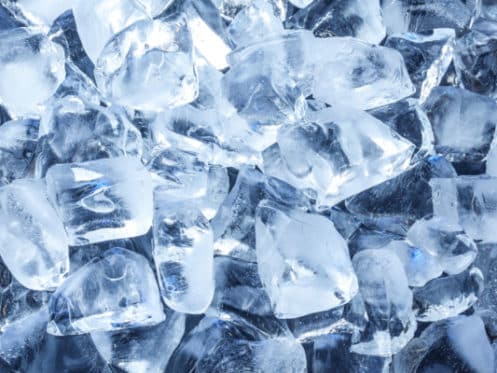It has happened to all of us. You return home from a hot summer day looking to cool down, turn on the air conditioner, and it’s not working. Despite being the hottest day ever, your air conditioner cannot keep the house cool.
You adjust the thermostat to solve the issue. No results. You give it a few gentle jabs, nothing. At this point, your only option is to examine the AC unit outdoors. Upon examination, you discover that your air conditioner is frozen. There is no need to worry because there are a few things you can check to fix the problem.
Potential Causes
If your air conditioner is not working, there are some possible causes. There are also some things you can try to get it working again.
Refrigerant Leaks or Mechanical Issues
Several moving parts in air conditioners might break, leak, or become trapped. For example, refrigerant lines can kink, fans can stop moving, or filters can become clogged. Any of these things causes a pressure drop, allowing the refrigerant to expand too much and become too cold.
Refrigerant is essential to ensuring a regulated temperature throughout your air conditioner. However, a refrigerant level that is too low is known to cause freezing.
Frozen Evaporator Coils
The component of an air conditioner or heat pump that collects heat from the indoor air is called an evaporator coil. It is either connected to the furnace or is housed inside the air handler. The evaporator coil within the blower compartment is where the compressor transports the refrigerant.
Your air conditioner’s performance will be problematic if dust and grime accumulate around the evaporator coils. In addition, the coils carry refrigerant to the heat pump, increasing the chance that the coil will freeze. Therefore, regular coil cleaning is necessary to ensure optimum heat absorption. Otherwise, the coils risk freezing.
For the coils of air conditioners to avoid condensation and freezing, there must be a steady flow of air. Therefore, you must ensure your air filters are clean and not clogged to maintain sufficient airflow in your home.
Clogged Filters
Another frequent cause of your air conditioner freezing is a filthy or clogged air filter. You should constantly ensure your air filters are clean since they significantly influence how much airflow you get. Even with a perfectly working air conditioner, clogged filters can cause poor airflow. In other words, clean your air filters.
Checking to see whether light can pass through the air filter is a helpful way to determine whether it needs to be replaced. As an added precaution, set your phone and calendar notifications to help you remember this crucial maintenance tip.
Watch Out for Cool Summer Nights
A cool night on a summer day may cause your air conditioning unit to freeze. The optimal operating temperature thresholds for air conditioners are predetermined. An air conditioner might go out of sync when summer evenings are cooler than the ideal threshold can tolerate.
Be aware of any temperature drops below 60 degrees if you don’t have a programmed thermostat. You can avoid potential problems by automatically turning off the AC when the temperature drops below 60 degrees. Another solution is to turn off your air conditioning and open your windows to let in the refreshing summer breeze.
Faulty Blower Motor
The condenser unit houses the air conditioner’s fan. This is the part of the air conditioner that is outside of your house. Therefore, you must go outdoors and view the fan through the condenser unit’s vents to ascertain whether this component is functioning.
If your air conditioning unit is frozen, it is possible that ice buildup is being brought on by a damaged or malfunctioning blower fan in your system. Blower fan problems can cause an AC to freeze up and drastically lower the unit performance. If you suspect this is the problem, you should get a specialist to examine your system.
Damaged Ductwork
AC ducts are conduits that provide warm or cold air to heat, ventilate, and chill each space. The air conditioning system is connected to air ducts, which filter the air before heating or cooling it for distribution. Collapsed ducting can also affect airflow in the same way that debris does. Ductwork may easily hinder airflow if it isn’t installed correctly, which will prevent warm air from reaching your unit and keeping it running efficiently. Duct tape can patch tiny gaps or holes in ducts, but experts must evaluate more severe damage.
Examine the Condensate Drainpipe
Air conditioning systems operate by extracting moisture from the air. After removing that humidity, the moisture moves to the condensate drip tray. This water may eventually overflow if your system ever gets clogged. As a result, the evaporator coil may freeze.
Your air conditioner’s condensate drainpipe extends from the inside unit to the exterior of your house. Near your outside unit, you’ll see a white PVC or copper pipe where the drainage line stops. A tiny pump is used in some condensate drain lines to speed up the drainage process. If your drainpipe is clogged, try removing any obstructions or get expert assistance to avoid this problem.
Low Refrigerant
Your system may be short on refrigerant if you find that your air conditioner is freezing up. Your air conditioner uses a chemical substance known as refrigerant. It absorbs heat from the surroundings and produces cold air after passing through compressors and evaporators.
However, enough of this refrigerant must enter your system to function correctly. The compressor uses this refrigerant on the outside unit to circulate cool air within your house.
The pressure inside an AC system will drop if there is insufficient refrigerant. As a result, the evaporator coils’ temperature will drop, potentially falling below freezing. This can cause adjacent water vapor to freeze and cling to these coils. As a result, the coils may develop a thick film of ice after the initial frost has formed.
Low refrigerant levels frequently signify a leak. This leak can be in the compressor, evaporator coil, or refrigerant lines. If your air conditioner is freezing up, call a qualified HVAC expert to inspect it for leaks.
Simple Solutions to Try
Turn off the air conditioner and allow it to thaw. Then, turn the fan “on” for around an hour or two. At this time, look at your air filter to see if it needs to be changed. Your air conditioner ought to function normally again after that.
Next, implement a strategy for periodic inspection. Spring is the optimal time to have an HVAC specialist examine your air conditioning system. Air conditioning maintenance increases your HVAC system’s lifespan and avoids issues like a frozen air conditioner.
By using the advice in this article, you may improve the efficiency of your air conditioning system while also bringing cool air back into your house.
Contact the Pros
Contact Affordable Air & Heating in Lancaster to receive excellent services at reasonable rates. We are a family-run heating and conditioning business offering top-notch services since 1996. We offer heating services, cooling services, and indoor air quality solutions. We also can install mini-split systems and humidifiers for your indoor comfort.




